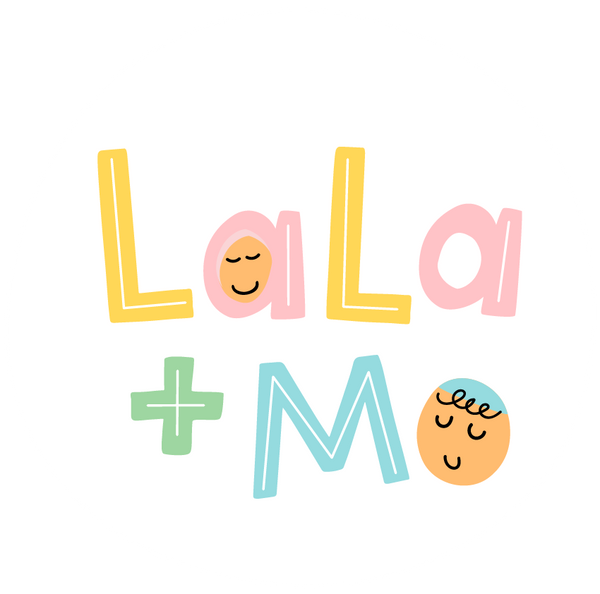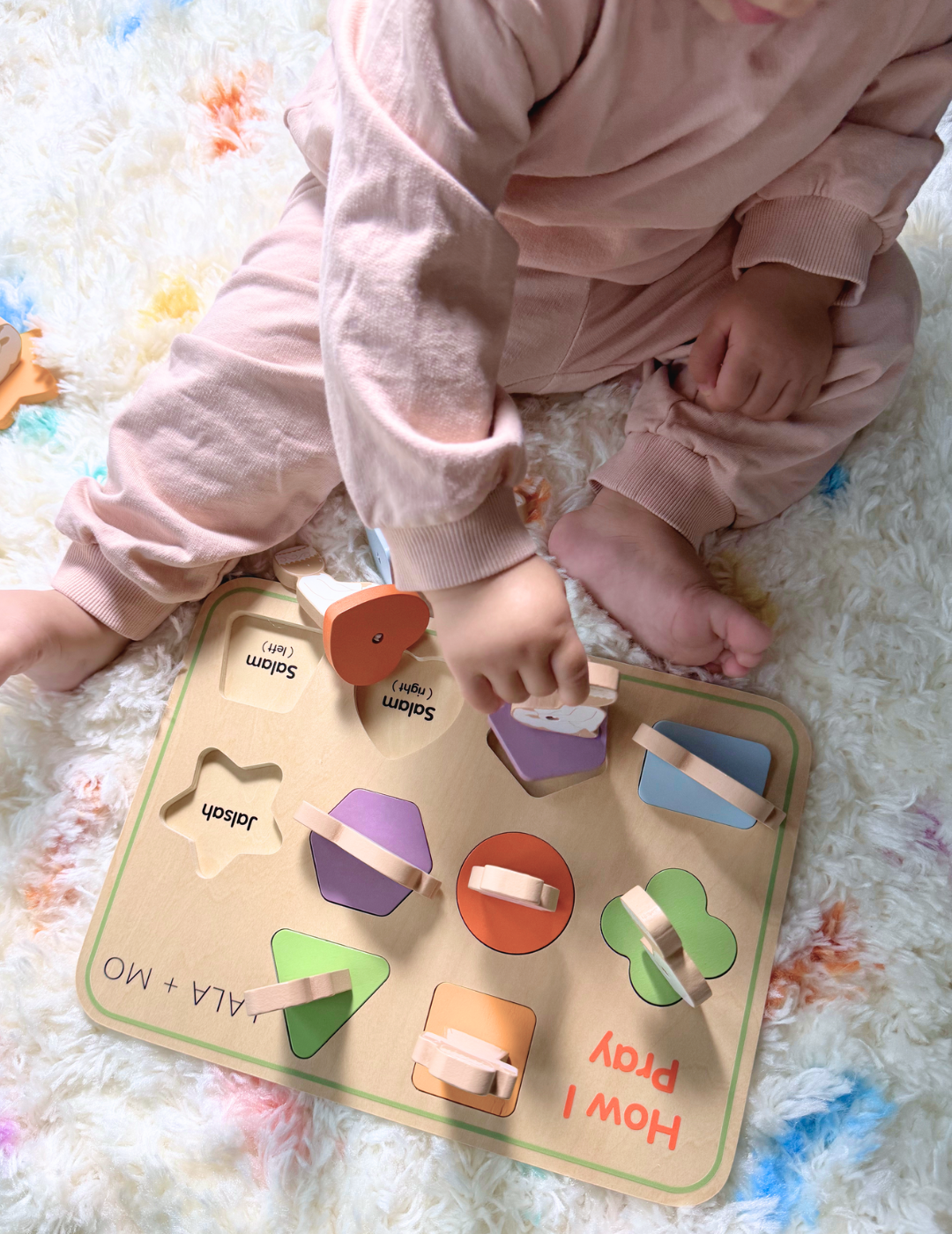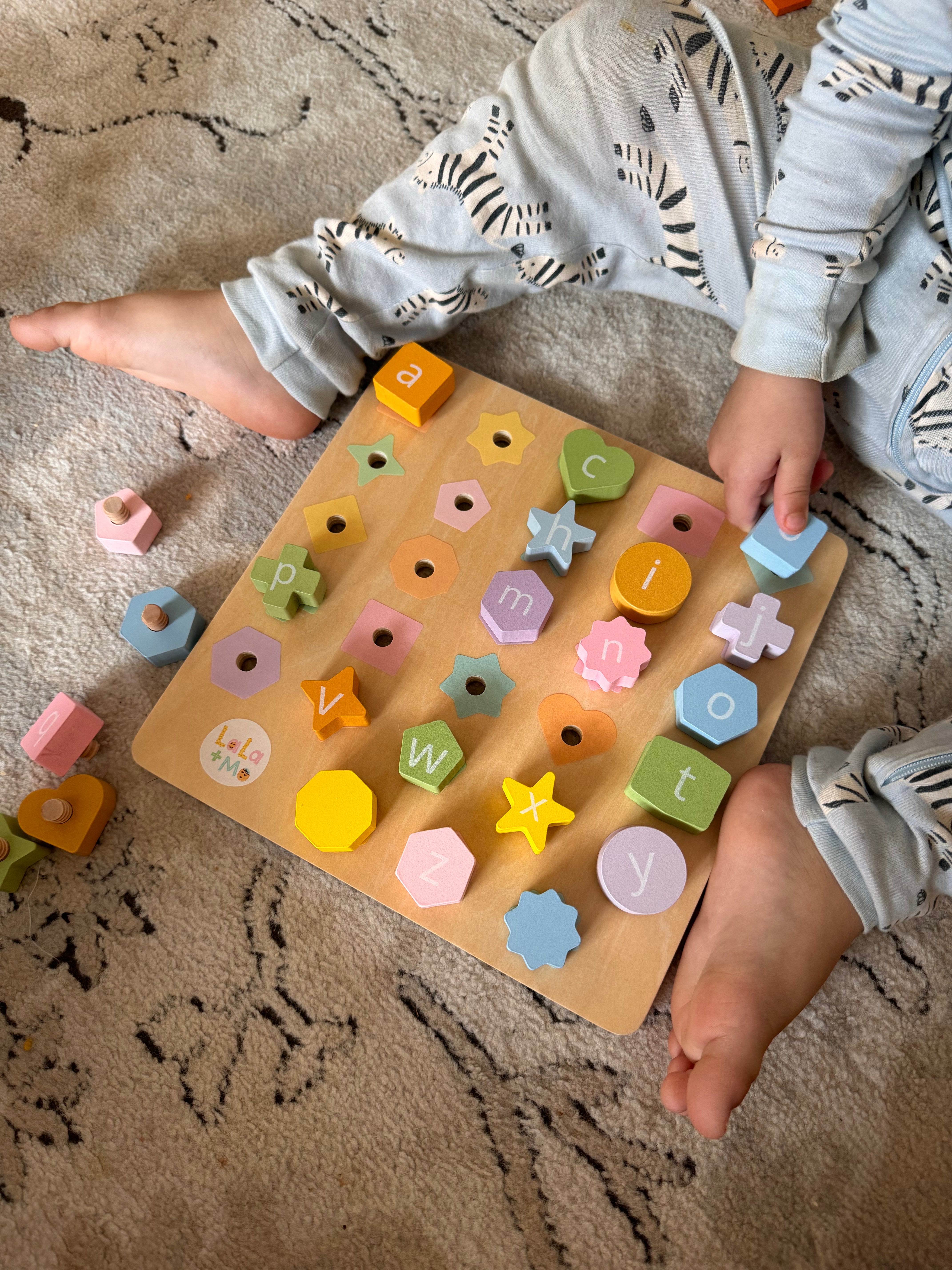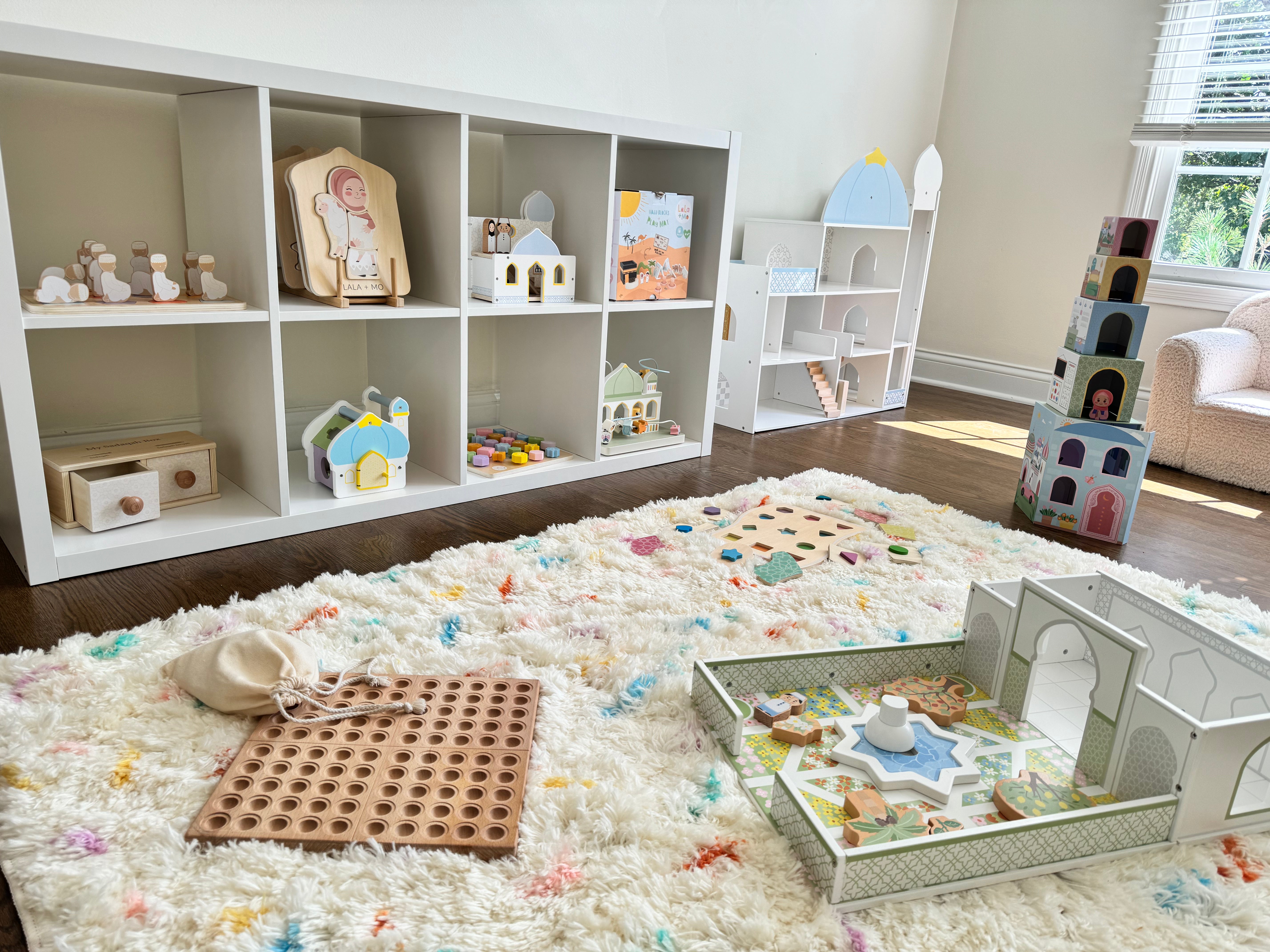The Hidden Curriculum: Akhlaaq Lessons Inside Every Toy
The Hidden Lessons Behind Every Toy
Every toy tells a story.
Some are bright and noisy. Others are simple, calm, and full of meaning.
At Lala + Mo, we design toys that teach more than letters or shapes — they nurture akhlaaq (Islamic character). Because when play is intentional, it becomes tarbiyah: nurturing the heart and soul alongside the hands and mind.
1. Patience Through Puzzles
The Prophet ﷺ said: “The strong person is not the one who overcomes others, but the one who controls himself when angry.”
Children learn patience long before they can name it — often through small challenges like aligning puzzle pieces or finishing a pattern.
Our Juz’ Amma Puzzle Set and Prayer Puzzle encourage children to try again with calm focus, building sabr one piece at a time.
Through repetition and effort, they experience the joy of accomplishment — the Montessori way of learning resilience.
🧩 A child who learns to wait through play learns to persevere through life.
2. Teamwork Through Blocks
Cooperative play is the seed of empathy.
When children build towers together using our Arabic Alphabet Blocks, they learn how to take turns, share space, and support each other’s ideas.
Islam beautifully mirrors this principle: “The believers are like one body.”
Through shared building, children see the strength in unity and the beauty of collective creativity.
🧱 When they build together, they’re not just making towers — they’re building bonds.
3. Gratitude Through Food Play
The Eat the Sunnah Play Food Set transforms imaginative play into lessons of gratitude.
Each wooden fruit — date, fig, or pomegranate — sparks conversations like:
🌿 “Who gave us these foods?”
☀️ “Which foods did the Prophet ﷺ love?”
💧 “What do we say before eating?”
These small reflections help children internalize the Sunnahs of eating: beginning with Bismillah, eating together, avoiding waste, and saying Alhamdulillah.
Play becomes a joyful reminder that every blessing deserves thanks.
🍇 Even pretend play can plant seeds of gratitude.
4. Respect and Manners in Sacred Spaces
Our Mega Masjid Playhouse brings the beauty and etiquette of the masjid to a child’s level.
As they remove their shoes, place them on the racks, and “enter” saying Assalamu Alaikum, they learn through experience — not lecture — how to behave in Allah’s house.
They notice where to perform wudu, how to line up for prayer, and when to use their indoor voices.
These small, repeated actions build adab (good manners) and ta‘zeem (respect).
Through role play, the masjid becomes familiar, safe, and beloved — a space of calm, care, and connection.
🕌 Respect begins when play invites reverence.
5. Toys as Tools for Tarbiyah
Good character isn’t memorized; it’s lived.
Every toy can carry a quiet lesson:
-
Puzzles teach sabr (patience)
-
Blocks teach ta‘aawun (teamwork)
-
Food play teaches shukr (gratitude)
-
Masjid play teaches adab (respect)
This is the heart of Islamic Montessori education — transforming ordinary play into a journey of moral growth and spiritual awareness.
🌿 Final Reflection
Children don’t learn manners from lectures — they learn them from living examples.
When toys are thoughtfully designed, every playtime becomes a chance to reflect the Sunnah: patience while solving, kindness while sharing, gratitude while pretending, and respect while playing.
Through play, our children learn that akhlaaq isn’t something to be taught — it’s something to be practiced, joyfully, every day.




